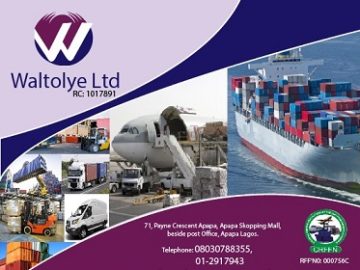Authorities in Iran said on Friday it has released a South Korean vessel intercepted three months ago along with the captain.
Iranian forces intercepted the South Korean tanker in the Persian Gulf in January, alleging it was captured for over alleged environmental pollution, while also complaining that Seoul had frozen $7 billion of its assets to comply with U.S. sanctions.
On Friday, South Korea also said that the ship, the MT Hankuk Chemi, had been freed.
Video footage by MarineTraffic.com data showed the ship leaving the port of Bandar Abbas.
Iran denies its seizure of South Korean tanker is hostage-taking
It was unclear to what extent that Iran’s move was linked to the talks in Vienna, which are expected to stretch for weeks. But Iran’s demand for access to its frozen funds is part of broader negotiations over the revival of the nuclear deal between Tehran and six world powers.
President Donald Trump withdrew from the deal in 2018 and reimposed harsh sanctions. Iran, in retaliation, began increasing its uranium enrichment beyond permitted levels. The Biden administration and Iran have expressed their desires to revive the agreement, but have been at an impasse at how to do so.
Iran and the United States began indirect talks in Vienna on Tuesday. For days, European diplomats have shuttled proposals between the two delegations, holed up in two separate luxury hotels on opposite sides of a tree-lined boulevard in the Austrian capital.
Their hope is to agree to a road map that would lift U.S. sanctions imposed under Trump and recommit Tehran to its agreements under the accord, including limits on uranium enrichment.
Story continues below advertisement
Iran and signatories to the deal — excluding the United States — held formal meetings on Friday that “took stock of the discussions held at various levels” over the past days, the European Union said in a statement.
European coordinators will continue separate contacts with all participants to the deal and the United States, with meetings to take place again next week, it added.
Talks on reviving Iran nuclear deal begin on ‘right track,’ Tehran envoy says
Exactly which sanctions are lifted and which remain in place is expected to be a sticking point in negotiations. On Wednesday, the United States said it was willing to lift sanctions on Iran that are “inconsistent” with its 2015 nuclear deal.
Iran has stated it wants wide-ranging sanctions relief: an end to sanctions initially lifted under the accord but reimposed by Trump, as well as more than 1,500 new measures Trump levied as part of his “maximum pressure” campaign after withdrawing from the deal.
Story continues below advertisement
“All Trump sanctions were anti-JCPOA” and “must be removed,” Iranian Foreign Minister Mohammad Javad Zarif tweeted on Friday, using the initials for the nuclear pact.
Other hurdles include how to deal Iran’s advances in research and development know-how after it stepped up enrichment and other nuclear-related programs when Trump pulled out of the accord.
Iran has in the past strongly hinted that access to its funds in South Korea might be the kind of goodwill gesture that would break the deadlock with the United States. The money would pass through Switzerland and be restricted to purchases of humanitarian goods such as medical devices, Iranian officials have said.
Iranian vessel was struck by explosion in Red Sea as nuclear talks began
Saeed Khatibzadeh, an Iranian Foreign Ministry spokesman, said that the ship and its captain were released “following the completion of the investigations about violations of this vessel and the requests from the owner of the ship and Korean government.”
Story continues below advertisement
A South Korean Foreign Ministry official said Friday that “we firmly expressed our willpower to solve issues related to the frozen funds.” The official, who was not authorized to be named, said South Korea’s “efforts were communicated to Iran and could have positively influenced the final decision to release the seized vessel.”
It was not clear whether the Biden administration had authorized South Korea to release the Iranian funds. South Korean officials had previously said they would require U.S. agreement to unfreeze Iran’s assets.
“Iran started recognizing South Korea’s efforts to solve the frozen funds issue after realizing that it involves not only South Korea’s power and efforts but also the JCPOA negotiations,” the South Korean official said. “The captain and the crew members are in good health, and it is confirmed that the vessel including the cargo are in good conditions.”
The Trump administration pulled out of the deal in 2018 and imposed a range of new and former sanctions on Iran. Tehran’s leaders, in turn, increased uranium enrichment and began other nuclear-related activities prohibited under the deal. The United States and allies worry that Iran is shrinking the “breakout time” to reach the ability to make a nuclear weapon. Iran has long insisted it does not seek nuclear arms and wants to enrichment uranium for reactors.

















